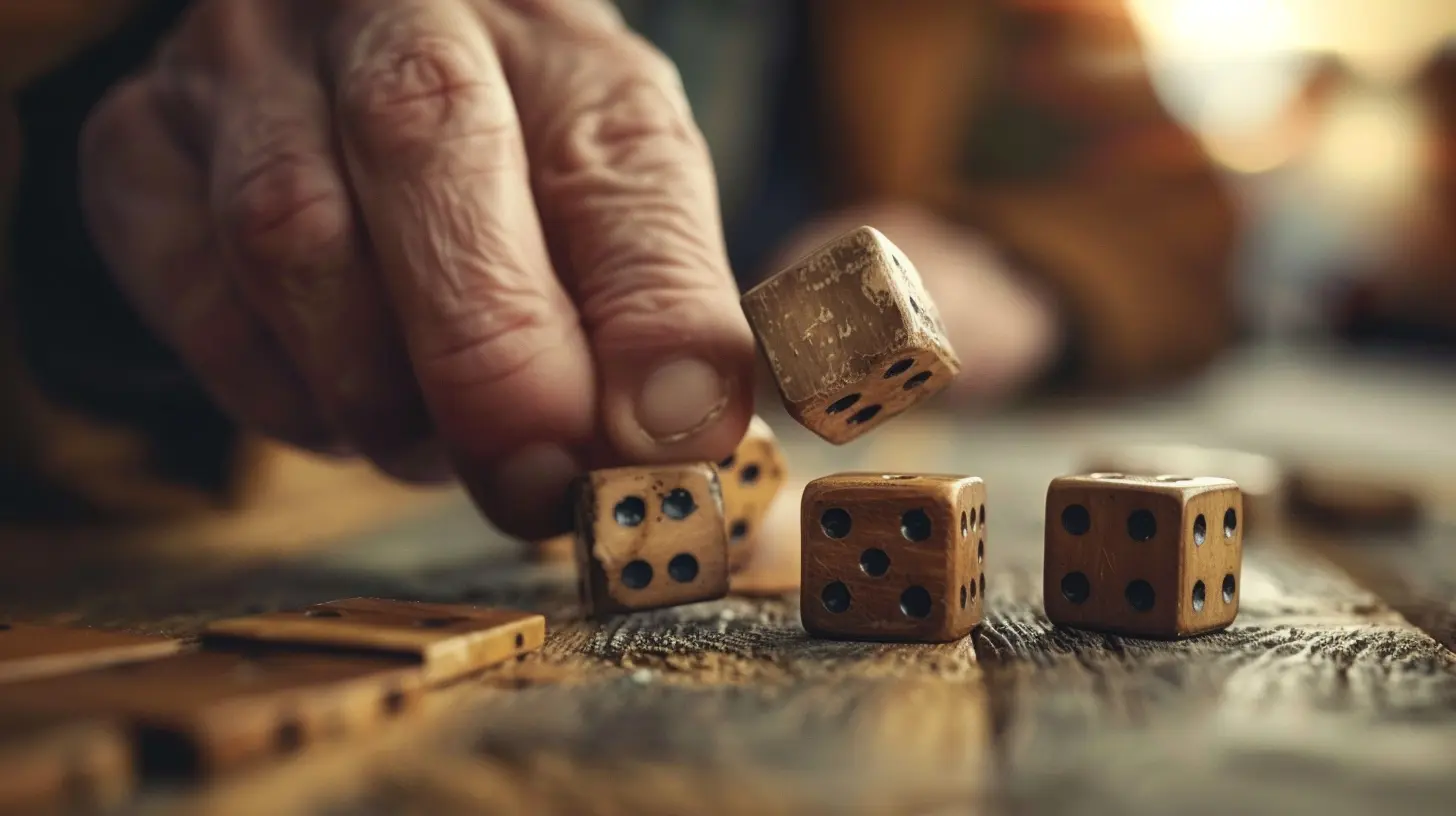How One-Life-Only Rules Change the Way You Play
21 August 2025
Alright, let’s get real for a second. Gamers love a good challenge, right? Whether it’s the latest boss fight that has you sweating bullets or the last-man-standing thrill in a battle royale, it’s that adrenaline rush that keeps us coming back. But what happens when the stakes are literally life or death — not in real life, of course, but in-game?
Welcome to the world of “one-life-only” rules. Also known as permadeath or hardcore modes, this idea flips the gaming experience on its head. One wrong move, one miscalculation, one unlucky moment — and it’s game over for good. No respawns. No second chances. Just the echo of your mistakes and the brutal realization that you have to start all over.
Yeah, it’s intense. And that’s the point.
In this article, we’re diving deep into how these rules completely change the way you play. From psychological shifts to gameplay strategies, let’s unravel what makes one-life-only modes not just challenging — but gaming at its purest and most personal.
The Psychology of High Stakes: Why It Feels So Real
So, what is it about one-life modes that hits different?Think about it — in most games, death is just an inconvenience. You reload a checkpoint, maybe lose some loot, but you’re back on your feet fast. But when there’s a one-life rule? Suddenly, every step is a calculated risk.
Your brain shifts gears. You’re no longer just “playing” — now, you’re surviving.
This taps into the same part of our brain that reacts to real-world dangers. Increased heart rate, tunnel vision, heightened awareness — it’s as close to "real stakes" as you can get in a digital world. It's like walking a tightrope without a net, and that fear of falling makes every moment feel alive.
So yeah, it’s not just a rule. It’s a psychological switch — and once it flips, you play differently. Way differently.
One Life, Infinite Impact: How Decision-Making Evolves
Ever notice how in standard games, you might rush into a room without thinking? Guns blazing. YOLO. If you die, you just try again.But with one-life-only? Every decision becomes a little mini-game of its own.
You Start Thinking Like a Tactician
Do you sneak around the enemy camp or risk a frontal assault? Is that noise in the bush just ambient sound, or is it your doom hiding in the shadows? You can’t afford to be reckless — every action has consequences.You weigh risks like a chess player sizing up their next move. It’s deliberate. Thoughtful. Calculated.
And let’s be honest: it feels awesome when your strategy pays off. That dopamine hit isn't just for winning — it’s for surviving.
Risk-Reward Becomes Crystal Clear
Permadeath players get hooked on the gamble. Do you go for that juicy loot on the other side of the map, even though the path is dangerous? Or do you play it safe and keep what you’ve got?One-life-only mechanics build natural tension like no game script ever could. You're not just playing a game; you're constantly betting your entire progress on yourself. That’s exciting, and slightly terrifying — in the best way.
Slower, Smarter, Stronger: How Playstyle Changes
When you’ve got one life to live, your playstyle naturally slows down. And that’s not a bad thing. It’s like switching from sprinting to hiking — you start to notice the little things.You Appreciate the World More
In fast-paced shooters or RPGs, it’s easy to overlook the environment. But when your life depends on noticing that hidden trap or faint sound cue? Suddenly, you’re paying attention to every cracked twig, every whisper of wind.Patience Becomes a Superpower
Rushing into unknown territory? Not anymore. You’ll wait. You’ll observe. You’ll plan.It’s not cowardice — it’s smart gaming.
That tension between wanting to advance and being scared to die creates a beautiful push-pull in your brain. It’s like playing chess while walking a tightrope. You’ve got to stay sharp and stay slow.
Death Means Something Again
Let’s face it — in many modern games, death is kind of... meh. It’s a slap on the wrist.Not here.
The Fear of Loss
You invest time. You gather gear. You level up. You build a story — your story. And then? One mistake, and it’s gone.That loss hits hard, and that’s the magic. Because games are supposed to evoke emotion, and nothing does that like the cold, cruel hand of permadeath.
It forces you to care. To actually value your time and effort.
The Glory of Survival
On the flip side, surviving feels like winning the lottery. Every minute alive is an accomplishment. Every enemy defeated is a triumph. You don’t need a leaderboard to tell you you’re doing great — you feel it in your bones.It’s an emotional rollercoaster, and that’s why it sticks with you.
Famous Games That Make It Work
One-life-only isn’t some fringe idea. It’s been implemented across genres, and some of the most intense and rewarding gameplay experiences come from it.Minecraft Hardcore Mode
Let’s start with a classic. One wrong step into a creeper’s embrace, and your world — the one you spent weeks building — is deleted. Brutal? Yep. But Minecraft Hardcore forces planning, security, and caution. It makes you think like an actual survivor.DayZ and Survival MMOs
The permadeath-like mechanics in survival MMOs like DayZ bring a whole new dimension to social interaction. You trust someone? That could be your end. You betray someone? You might gain loot, but lose sleep.It’s like Game of Thrones with backpacks.
Fire Emblem (Classic Mode)
Permadeath here adds emotional weight to every character. They’re not just units on a grid — they’re comrades. One critical hit, and you’re holding a funeral in your heart. It affects how you manage your army. You grow attached, and that changes everything.Escape From Tarkov
Tarkov is notorious for its punishing nature. If you die, you lose everything you brought into the raid. That high-stakes economy makes every choice matter. Fights are tactical, looting is a thrill, and survival is a reward.The Community and Culture Around It
There’s something special about the permadeath community. These players aren’t just thrill-seekers — they’re strategists, storytellers, philosophers of the digital world.Streaming and Spectating
Watching someone play a one-life-only run feels like tuning into a live wire. Viewers are on edge, rooting hard, tense with every decision. It’s reality TV for gamers — raw, unpredictable, and emotionally charged.Permadeath Diaries and Stories
Gamers love to share their permadeath adventures — the close calls, the narrow escapes, the devastating missteps. These stories become war tales. They're passed around as legends, and they matter because they’re earned.Should You Try It?
Honestly? Yeah.It’s not for everyone, but playing a game with one-life-only rules, even just once, is an experience worth having. It makes you step outside your comfort zone. It teaches patience, precision, and respect for challenge.
You’ll see games — and yourself — differently.
Don’t be scared of failing. Be excited to care.
Tips for Your First One-Life Run
Ready to join the hardcore club? Here are some quick tips:- Start small: Pick a game where permadeath won’t make you rage-quit for a week. Something like Minecraft Hardcore is a great entry point.
- Stay calm: Panic kills more runs than enemies do.
- Master the basics: Know your controls, mechanics, and surroundings like the back of your hand.
- Plan ahead: Whether it’s healing items or exit routes, preparation is your best defense.
- Forgive yourself: You will die. And it’s okay. Learn, laugh, and try again.
Final Thoughts: One Life to Live, Infinite Lessons
One-life-only modes aren’t just about difficulty — they’re about meaning. They strip away the gimmicks and distractions and ask: Can you survive with what you’ve got? It’s raw, honest gaming. When every choice could be your last, you start to value each moment more deeply.And honestly? That’s the closest a game can get to feeling truly alive.
So go ahead. Try it. Embrace the fear, the intensity, the strategy. Because in a world of infinite lives, sometimes the most powerful story comes from the one you only get to live once.
all images in this post were generated using AI tools
Category:
Game ChallengesAuthor:

Stephanie Abbott
Discussion
rate this article
2 comments
Zanthe Jordan
This article brilliantly highlights how one-life-only rules intensify player engagement, fostering a unique blend of strategy, tension, and emotional investment that transforms the gaming experience.
January 23, 2026 at 3:41 PM

Stephanie Abbott
Thank you! I'm glad you found the article insightful. One-life-only rules truly do elevate the gaming experience by adding depth and intensity.
Faryn Jacobs
Intriguing! How does this impact strategy?
September 2, 2025 at 3:38 AM

Stephanie Abbott
The "one life only" rule encourages players to adopt more cautious and strategic approaches, focusing on long-term planning and resource management rather than reckless play.


